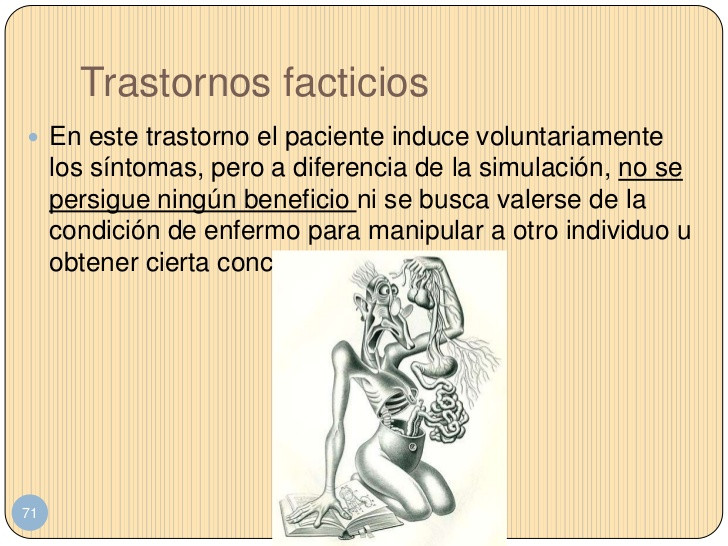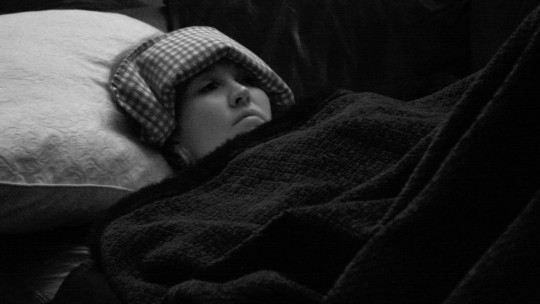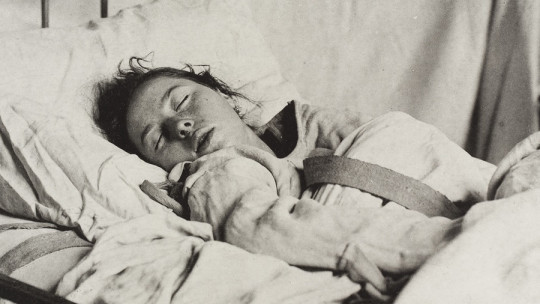He factitious disorder It is a condition in which the patient consciously and deliberately acts as if he or she has a physical or mental illness when nothing is really wrong.
Patients with this disorder create and exaggerate the symptoms of a disease in different ways. They may lie about their symptoms, harm themselves as a way to create visible symptoms, or alter medical tests (for example, a urine sample) so that they appear sick.
In fact, they are capable of undergoing painful tests or risky operations to gain the sympathy of people who care for individuals who are really sick.
They are usually people with emotional difficulties
This behavior is considered a disorder because is associated with serious emotional difficulties. But, in addition, people who suffer from this psychopathology often suffer from other mental health problems, such as personality disorders.
That is, these individuals They often have long-standing patterns of thinking and behavior that differ from what society considers normal. In addition, they also often have poor coping skills and serious problems relating to others.

Differential diagnosis between Factitious Disorder and Somatoform Disorder
Factitious disorder is similar to another psychopathology called somatoform disorderwhich also includes the presence of symptoms that have nothing to do with a real disease. Now, People with somatoform disorder do not fake their symptoms or deceive others. but they think they have diseases that they really don’t have.
Characteristics of a person with Factitious Disorder
People with this disorder usually have these characteristics:
Types of Factitious Disorders
Depending on the different symptoms, there are four types of factitious disorders:
Factitious disorder with mostly psychological symptoms
Individuals with this psychopathology mimic the typical symptoms of schizophrenic disorder. Therefore, they often feign confusion, make absurd statements, and claim to have hallucinations or delusions; for example, hearing voices.
Factitious disorder with mostly physical symptoms
People with this disorder report having symptoms related to a physical illness, such as symptoms of chest pain, stomach problems, or fever. This disorder is also known as Munchausen syndrome.
Factitious disorder with psychological and physical symptoms
People with this disorder report having symptoms of both physical and mental illnesses.
Factitious disorder not otherwise specified
This type includes a disorder called tfactitious disorder by proxyalso known as Munchausen syndrome by proxy. People with this disorder make up the symptoms of the illness in another person under their care. It occurs most often in mothers (although it can occur in fathers) who intentionally harm their children in order to receive attention.
Causes of Factitious Disorder
The exact causes of this disorder are not known, but Researchers believe it is due to biological and psychological factors.
Some theories claim that these patients have suffered abuse or lack of affection during childhood that may have serious emotional problems associated with them, as well as a medical history that is characterized by the frequent presence of diseases that require hospitalization.
Studies suggest that this condition is more common in men than in women. On the other hand, factitious disorder by proxy is more common in women.
Factitious Disorder Treatment
The most important goal of the treatment of this disorder is modify patient behavior and eliminate or reduce misuse of medical resources. In the case of factitious disorder by proxy, the primary objective is the protection of any potential victim.
Once these objectives have been met, the next step is to understand the psychological reasons that are causing the patient’s behavior. The treatment par excellence is psychotherapy, preferably cognitive-behavioral therapy. In this way, the patient’s thinking and behavior are acted upon.
Family therapy can also be helpful so that family members do not reward the patient’s harmful behavior. In severe cases, antidepressant and anti-anxiety drugs are administered









